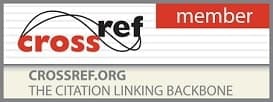E-ISSN: 2617-9229|P-ISSN: 2617-9210

Printed Journal | Refereed Journal | Peer Reviewed Journal
Peer Reviewed Journal
Vol. 8, Issue 2 (2025)
Impact of systemic, collaborative, and regulatory frameworks on adopting advanced audit methodologies amongst accounting practitioners: An empirical study
Rakhi Mann and Manoj Kumar
As India’s financial sector continues to expand, the adoption of digitally driven forensic auditing has become essential to uphold integrity, transparency, and long-term economic stability. Leveraging technology allows Indian regulators and financial institutions to enhance their ability to prevent financial crises and foster investor trust. This study aimed to examine the influence of systemic, collaborative, and regulatory frameworks on the adoption of advanced auditing methodologies among accounting professionals. Using a multi-stage sampling technique, data was collected from 400 accounting practitioners in the Delhi NCR region. The findings indicated no significant relationship between modernization efforts and practitioner enablement. Consequently, the hypothesis suggesting that systemic, collaborative, and regulatory frameworks have no significant effect on the adoption of advanced audit methodologies was upheld. Despite this, the study emphasized that systemic structures—such as regulatory backing and collaborative networks—are vital in promoting modernization and should be strategically utilized to facilitate the successful integration of emerging technologies in the auditing field.
Pages : 135-139 | 267 Views | 114 Downloads

How to cite this article:
Rakhi Mann, Manoj Kumar. Impact of systemic, collaborative, and regulatory frameworks on adopting advanced audit methodologies amongst accounting practitioners: An empirical study. Int J Finance Manage Econ 2025;8(2):135-139. DOI: 10.33545/26179210.2025.v8.i2.567





 Other Journals
Other Journals

